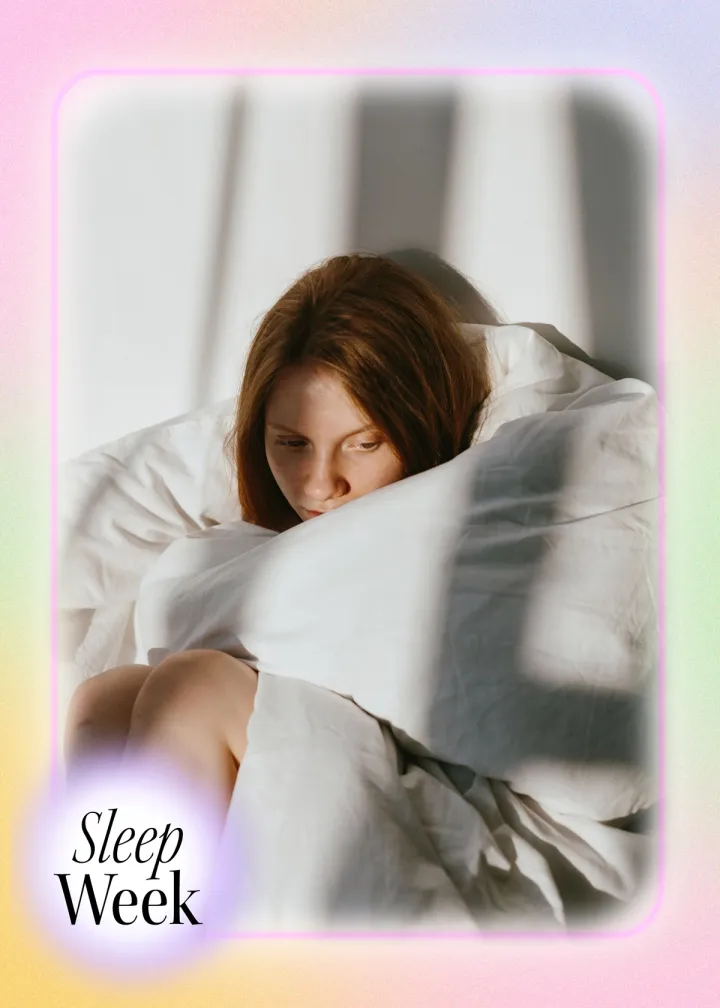
How a Lack of Sleep Can Affect Your Mental Health
A doctor and psychologist weigh in.
We've all been in situations where we haven't had enough sleep the night before or we've felt groggy and irritable the following day. It's a frustrating situation, but nothing we can't cope with. But what about if we're experiencing poor sleep over an extended period of time? Sleep is closely connected to mental and emotional health and not being fully rested, particularly over more than a couple of nights, does little to help support your well-being.
To dive deeper into how sleep can affect our mental health and vice versa, we spoke to two experts; General practitioner Dr Sam Saling and psychologist and clinical psychotherapist Noosha Anzab.
Why is sleep so important?
Sam: Sleep is an essential physiological process that affects our basic biology, and as humans we cannot function without it. The connection between sleep and mental and physical health is one that has been recognised for hundreds of years, with “convalescence” from illness having sleep and rest being a mainstay as recovery from illness, even today.
What is the link between sleep and mental health?
Sam: When sleep starts to falter, it can have grave impacts on our quality of life. It is a well-known fact that poor sleep is associated with mental health conditions. For example, a lack of sleep can be a clear trigger for a deterioration in some mental health conditions like bipolar affective disorder and schizoaffective disorders, and can even trigger episodes of psychosis. So too can sleep be an indicator of other mental health conditions like depression or anxiety, as common symptoms include insomnia or hypersomnia (that is, too little or too much sleep). This can lead to a destructive cycle that in turn worsens one’s mental state.
Noosha: If you ask me, sleep is the most underrated resource in our toolkit and has one of the most important purposes for our mental health. If sleep deprivation can have fatal consequences – doesn’t that highlight how important it is? Not sleeping for 24 hours has the same impact on our hand-eye coordination as a blood alcohol content of 0.10! That’s so incapacitating! We absolutely can’t deny the mind/body connection and if we don’t get sufficient sleep, our mental health suffers because of just that, the brain/body connection.
Sleep is actually a state of arousal and has a very organised set of brain states whose neural activity affects our biological organisation, genes, physiological states that control movement, autonomic function and even cognition. Poor sleep has been associated with posttraumatic stress, eating disorders and experiences of the psychosis spectrum disorders like delusions and hallucination. We know poor sleep makes emotional regulation more difficult, causes depressive symptoms as well as difficulties with hyperactivity and inattention. As our sleep declines, so does our physical health and our mental health follows suit or vice versa. Our brains and bodies are resilient, sure we can go a night or two, here or there, without sufficient sleep but long term it is just so detrimental particularly because of how much stress our body produces and if you ask me, that’s one of our biggest killers.
What can happen to your mental health if you don’t get enough sleep?
Noosha: We can miss a developmental window, and really be impacted. Our experiences of feelings, emotions, and mood can be geared more negatively as we swing from one mood to the other and our patience can wear really thin. Not only that, but our coordination and concentration diminish, and the exhaustion means our brain can’t perform its usual duties as well as it can.
The immune system crashes because it isn’t repairing and building its forces up (which usually happens as we rest and recuperate during sleep) and our risk for chronic conditions increases. We take longer to recover from illness and boy can we become irritable. We can become stressed, anxious, depressed, and even manic.
Can anxiety and depression cause sleep problems?
Noosha: Absolutely! Anxiety can cause repetitive thoughts or racing thoughts, it can make us feel flooded with worries and that can keep us awake. It can also cause higher sleep reactivity, meaning that in times of stress, sleep disturbances or problems with sleep are much more likely. Anxiety disorders also affect REM sleep so hello more vivid dreams which can often be more disturbing. Depression can cause us to sleep more (hypersomnia) and yet still feel tired. It can also cause early morning wakefulness when we wake up at 4 am and then not be able to return back to sleep. Panic disorders can make us feel like we are going to have a panic attack when it comes to getting some shut-eye and that alone can cause us to stay wide awake. For trauma sufferers, they can have flashbacks, nightmares or night terrors, which usually reinforce a negative association or even fear around going to sleep. No matter what the condition, mental illness can cause sleep problems and sleep problems can worsen our mental illnesses or injuries.
The bottom line
Sleep is intrinsically linked to our mental health and how we perform during the day. In not getting an adequate amount of sleep each night, we significantly increase our risk of mental health problems.
Keen to know what Sam and Noosha do to ensure they get a good night's sleep? Read our What a Doctor and a Psychologist Do to Ensure They Get a Good Nights Sleep article.
This article is intended for informational purposes only and is not a substitute for individualised health advice. If you are concerned about your health and well-being, please speak to your GP, who will advise on the correct treatment plan. You can also call Lifeline 24/7 for mental health support on 988.
For more follow Dr Sam Saling @drsamsaling and Noosha Anzab @nooshaanzab
Enjoyed This?
Discover more sleep-related articles.










